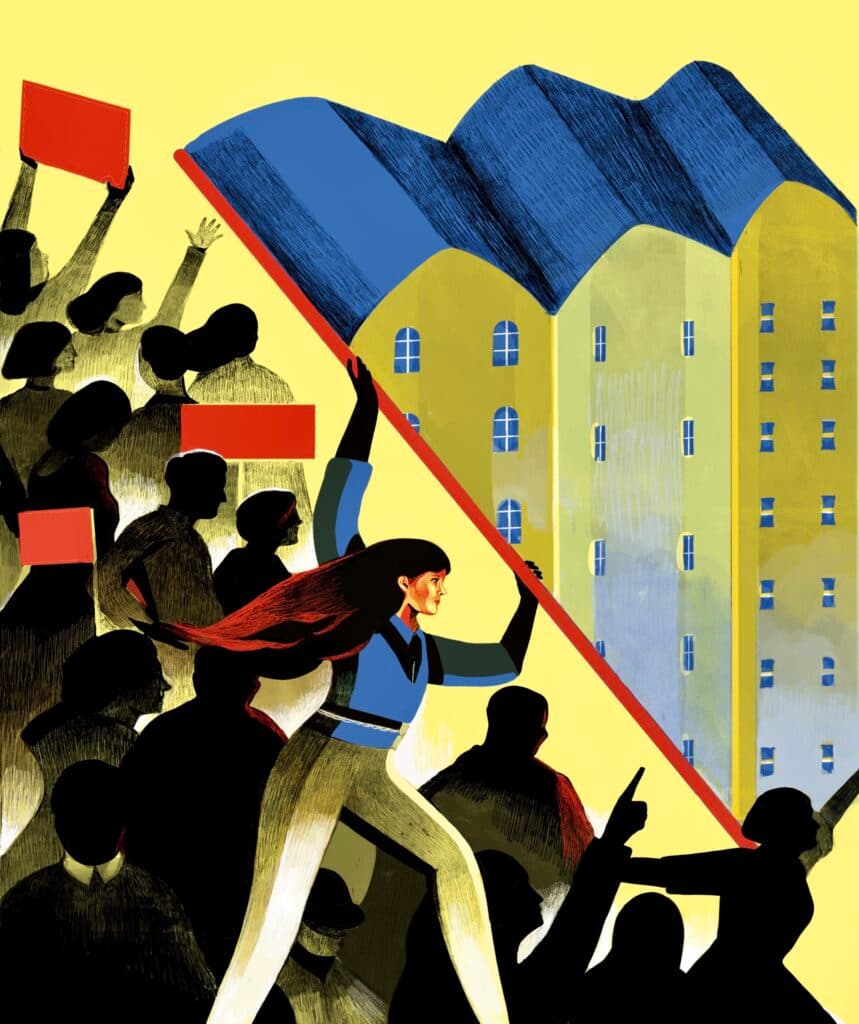AI-Generated Summary
Learn moreContext and Background
The article, published by POLITICO and authored by Aitor Hernández-Morales and Giovanna Coi, addresses a critical and often overlooked issue in European politics: the lack of affordable housing. This issue has become increasingly urgent, as public dissatisfaction has escalated from Lisbon to Łódź, with voters expressing frustration over rising housing costs. The article is part of a special report on housing in Europe by POLITICO’s Global Policy Lab: Living Cities.
Rising Frustrations
The article highlights that many European cities are experiencing protests against the scarcity of affordable housing. In particular, Dublin has seen anti-immigrant riots fueled by the perception that limited public housing is being allocated to foreigners. Similarly, cities like Lisbon, Amsterdam, and Milan have witnessed large-scale demonstrations where thousands have taken to the streets to voice their concerns about the housing crisis.
Polling Data and Insights
A recent poll indicated that housing is regarded as one of the most significant issues facing city mayors in Europe. Sorcha Edwards, the secretary-general of Housing Europe, notes that this crisis has been building for years but has only recently gained political attention as it began to affect middle-class families. On average, Europeans spend nearly 20% of their disposable income on housing, with many perceiving a decline in availability.
Historical Context
The article traces the roots of the current crisis back to the post-war period, when European countries invested in affordable housing. However, this focus was abandoned in the 1980s with the rise of neoliberal policies, leading to budget cuts and the offloading of public housing assets. Municipal councils halted new construction, while the private sector failed to fill the gap, exacerbating the crisis.
Regional Variations in Housing Solutions
The article emphasizes that the housing crisis varies from city to city. For instance, in tourist-heavy areas, short-term rental platforms like Airbnb add additional pressure on housing availability. In contrast, Denmark presents a more robust model for affordable housing. The Danish system allows for non-profit management of public housing, ensuring that a significant portion of rent collected is reinvested into new construction and refurbishments. 🇩🇰 Denmark's Successful Model Denmark's public housing is designed to be high-quality and accessible, with about one-sixth of the population living in social housing. The CEO of the Danish Federation of Non-Profit Housing Providers points out that public housing is significantly cheaper than private-sector equivalents, thanks to its non-profit nature. 🇨🇭 The Swiss Cooperative Approach In Switzerland, nonprofit housing cooperatives provide a successful alternative to the housing crisis. These cooperatives offer rentals that are, on average, 15% cheaper than market rates. The cooperative model fosters a strong sense of community, as all residents have a say in management and operations.
Challenges and Future Outlook
Despite these models, cities like Zurich are also facing challenges. The increasing demand for housing, particularly from immigrants, has led to a rise in rents, making it difficult for cooperatives to expand. Housing Europe’s Edwards notes that while some governments are beginning to invest substantially in affordable housing, the effects of these investments take time to materialize.
Conclusion
In summary, the article sheds light on a pressing issue in Europe: the need for affordable housing. It discusses the varying approaches taken by different countries, highlighting both successful models and ongoing challenges. As public frustration grows, the political landscape may finally begin to shift toward addressing this critical issue.
